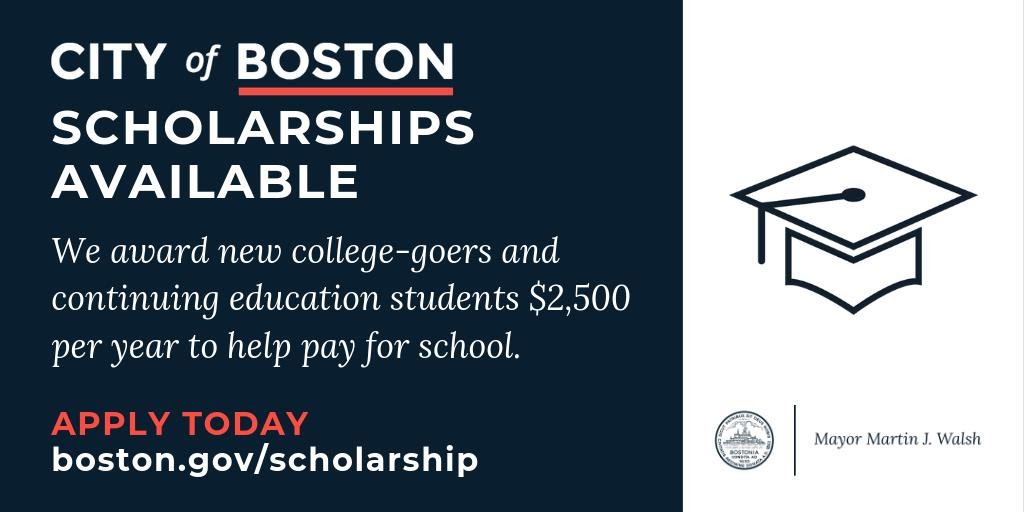MAYOR WALSH ANNOUNCES THAT HOME FORECLOSURES IN BOSTON DROPPED MORE THAN 60 PERCENT IN 2019
|
| Citywide, foreclosures were reduced from 103 to 40, a 61 percent reduction |
BOSTON - Tuesday, February 11, 2020 - Building on his Administration's work to prevent foreclosures and keep people in their homes, Mayor Martin J. Walsh today announced foreclosures in the City of Boston have dropped 61 percent since 2018, reaching a 17 year low, according to year-end reporting. Citywide, foreclosure executions were reduced from 103 in 2018 to 40 in 2019. At the height of the foreclosure crisis in 2008, the foreclosure executions in Boston numbered 1,215.
"I'm proud that through our work with homeowners, we have been able to reduce the number of foreclosures in Boston, and keep more families in their homes," said Mayor Walsh. "These results show that our programs and policies to prevent foreclosures and evictions are working. Housing stability is vital to ensuring Boston has strong neighborhoods and communities, and I want to thank the leadership and staff of the Boston Home Center and all of our provider partners who work so hard for Boston's homeowners every day."
According to the year-end reporting, the number of foreclosures executed against owner-occupant homeowners was halved from 35 in 2018 to 17 in 2019. Of the 40 foreclosure executions in 2019, 17 were owner-occupant homeowners while the remaining 23 executions were on investor-owners. Reducing the number of foreclosure executions on owner-occupied homes in the City of Boston to less than 20 per year is one of the goals of Mayor Walsh's comprehensive housing policy for Boston, Housing a Changing City: Boston 2030.
The Boston Home Center, a division of the Department of Neighborhood Development works with Boston homeowners at risk of foreclosure and funds foreclosure prevention programs at ABCD/Mattapan Family Services, ESAC, Urban Edge, and Nuestra Communidad. These partnerships are made possible by grants from the federal government, and competitive awards the Home Center receives from the Massachusetts Division of Banks and the Massachusetts Attorney General's Office. In 2019, the Boston Home Center and its partners assisted 205 homeowners at risk of foreclosure or in need of a more sustainable housing situation, preserving more than 100 tenancies in multi-family homes. More than half of the homeowners assisted were seniors, and the average owner income was $40,300.
"Since its inception in 2007, the partnership between the City of Boston Department Neighborhood Development/Boston Home Center and ABCD Mattapan Family Service Center has provided foreclosure prevention and homeowner stabilization counseling to more than 1,000 Boston families," said John J. Drew, ABCD President and CEO. "This partnership has a 96 percent success rate at negotiating affordable mortgage payments and implementing strategies that have prevented foreclosures and stabilized the Mattapan neighborhood. Increasing housing stability strengthens communities and we are proud of the work we do to assist our clients."
The number of lender-owned (REO) properties, homes that are held by a bank or mortgage company after not being sold at a foreclosure auction, has also been reduced by 60 percent. This 60 percent reduction benchmark means that Boston has not only exceeded the goal of a 50 percent reduction of REOs established in Mayor Walsh's housing plan but is a further indicator that Boston's housing market has largely recovered from the housing financial market collapse of 2008.
"The Boston Home Center has been an essential resource for local homeowners facing foreclosure and other housing challenges," said Attorney General Maura Healey. "We are grateful for the City's ongoing partnership in our efforts to combat the foreclosure crisis and support housing stability across the state."
Earlier this week, Mayor Walsh announced that one in four units of new housing permits in the City of Boston in 2019 was below-market-rate and deed-restricted. According to the data, nearly 26 percent, or 830 of the 3,206 housing units permitted in 2019, will be made available to those meeting income-eligibility criteria.
Since Mayor Walsh took office in 2014, the City of Boston has built more than 65 percent of all new homes in Greater Boston, with 20 percent of them deed-restricted for low- and middle-income households. Boston has surpassed 32,000 units permitted under the Administration's housing plan, including more than 6,200 deed-restricted units and 500 units for senior housing. More than 1,000 Boston Housing Authority units have been renovated, and the Department of Neighborhood Development (DND) has assisted more than 600 homebuyers in purchasing their homes and has aided 946 homeowners with mortgage workouts or other assistance in averting foreclosure or stabilizing their housing.
As part of the Administration's commitment to preventing displacement, Mayor Walsh filed a legislative package to the State Legislature that includes anti-displacement proposals. They include measures that would allow tenants and non-profits the right of first refusal to purchase properties subject to foreclosure or short sale; the right to counsel for tenants in housing court; protections for senior tenants; and the creation of a state income tax credit for renting unsubsidized units at below-market rates. Mayor Walsh has publicly testified at the State House to support the passage of these proposals.
|



